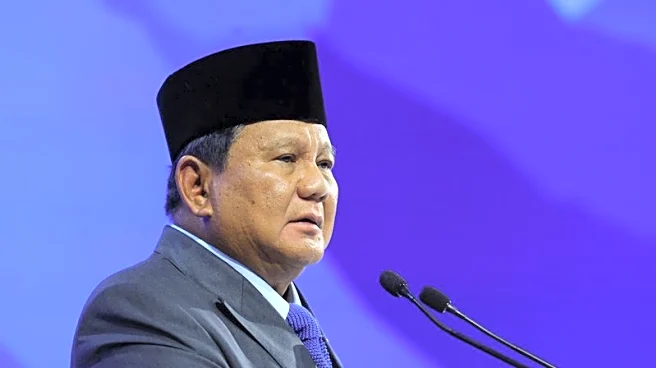Rapid Read • 8 min read
Jackson Blake, a 22-year-old forward for the Carolina Hurricanes, has signed an eight-year, $45 million contract, raising questions due to the upcoming changes in the NHL's Collective Bargaining Agreement (CBA). The new CBA, effective September 16, 2026, will limit teams to signing their own players for a maximum of seven years. This has led to speculation that more teams might rush to secure eight-year deals before the rule change. Blake's contract, with a $5.2 million average annual value (AAV), reflects this urgency, as teams may offer higher AAVs to secure longer terms before the new CBA takes effect.
AD
The signing of Jackson Blake's contract highlights the strategic maneuvers teams might employ in response to the impending CBA changes. The ability to offer eight-year contracts is seen as a valuable negotiating tool, allowing teams to lock in key players for longer periods. This could lead to increased player salaries as teams compete to finalize deals before the new rules are implemented. The shift in contract lengths may also impact player career strategies, with younger players potentially benefiting from shorter-term deals that allow them to renegotiate sooner.
As the CBA changes approach, teams are likely to prioritize securing long-term contracts for their most valuable players. This could result in a flurry of contract negotiations and signings in the coming months. Players and agents will need to navigate these changes carefully, using the current rules to their advantage while preparing for the new landscape. The NHL and its teams will continue to assess the impact of these changes on player retention and salary cap management.
The upcoming CBA changes could have broader implications for the NHL's competitive balance. Teams with more financial flexibility may be better positioned to offer lucrative contracts, potentially widening the gap between wealthier and less affluent franchises. Additionally, the shift in contract lengths could influence player development and team-building strategies, as organizations adapt to the new rules governing player tenure.
AD
More Stories You Might Enjoy












